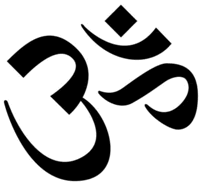Brief Overview
The Hindu tradition has no founder and is best understood as a
group of closely connected religious traditions rather than a single religion.
It represents a complete way of life. Hindus believe in one God and worship
that one God under many manifestations or images. They believe that all prayers
addressed to any form or manifestation will ultimately reach the one God.
Hinduism does not prescribe any particular dogmas; rather it asks individuals
to worship God according to their own belief. It therefore allows a great deal
of freedom in matters of faith and worship. Hindus consider that religion is a
sanctified and disciplined path one should follow to reach a higher level of
consciousness or goal (to become a better person). This can only be done by
following the path of Dharma. Dharma is at the heart of Hinduism which is often
called the Sanatana Dharma. Dharma means the ancient law which underlies the
order of the universe and is reflected in a moral and ethical life. Hindus
believe in the law of karma – a simple law of cause and effect. ‘As
you sow, so shall you reap’. They also believe in the divine nature of the
soul, which is indestructible and immortal. It transmigrates from body to body
depending on the merits and sins of one’s actions (karma) accumulated in a
lifetime. In the end, one’s karma (action) determines one’s future
rebirth. Hindus further believe in the descent (avatar) of Divinity to protect
the righteous and destroy the unrighteous. There have been several examples of
this in Hinduism including Rama, Krishna and Buddha. They serve as an example
and inspiration for pious Hindus. In one sense Hindus accept the prophets of
all religions as manifestations or avatars of God and recognise the presence of
God in all living beings.
Prayer and the reading of the Holy Scriptures, which give
Hindus an example of how they should live, are important practices. Worship or
veneration of the divine image takes place around a shrine morning or evening
in devout Hindu homes. There are two kinds of scripture in Hinduism: the
holiest texts, called the Vedas, and the great epics of the Mahabharata and
Ramayana. The Bhagavad Gita, which is part of the Mahabharata, is a very
popular text in the West. Hindus follow the lunar calendar and particular days
are set aside during the week and month to honour particular manifestations of
God.
Hindus frequently view systematic organisation with some
mistrust, believing it to be often showy and wasteful. Likewise, worship and
general religious activity are commonly centred around the home. However Hindu
temples or Mandirs, which have a priest, educated in the scriptures, do have
public worship twice daily and Sunday has become a day for communal worship and
activity. Only trained priests are able to perform religious ceremonies on
special occasions though anyone may perform puja.
Hindus should show love and respect for all beings as a way of
recognising the divinity within all creatures. Charity is extremely important.
It is generally practiced in a discreet, individual manner, and is seen as a
means of extending the natural love for the family into the wider community.
Hindus also have a concern for the future of their young people and offer
support to all members of their community, particularly vulnerable groups such
as the elderly. |



